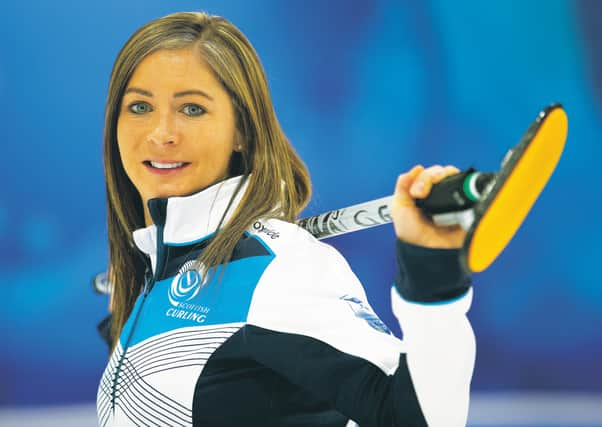Eve Muirhead: ‘I feel quite old but I want to be the best in the world again’


On Eve Muirhead’s right hand, a silver ring glistens. Adorned with a further five rings in a three-dimensional Olympic tribute, its band has 2010 and 2014 inscribed down one side and 2018 on the other.
“It’s a bit unbalanced,” she smiles, pointing to a vacant plot. “I could do with one more here.” Is it, I wonder, more a reminder of glorious times past – foremost the bronze she earned in Sochi in 2014 – or an omnipresent nudge to seek further jewels? It elicits momentary self-reflection. “Good question,” she offers. “I would say it’s probably a little bit of both.”
Advertisement
Hide AdAdvertisement
Hide AdFive weeks shy of turning 30, it would be understandable if Muirhead were to indulge in nostalgia. For over a decade, she has been skipping Scotland or the UK on the international stage, including a nine-year run in which every season was commemorated by a significant medal.
For all its apparent gentility, curling extracted a toll. Following the 2018 Olympics in South Korea, she required a hip surgery that did not quite cure all ills. “I feel quite old,” she proclaims. In curling years, perhaps. Yet today, she will fly to western Canada for the women’s world championships, which begin next Saturday, with a youthful spring replanted in her step.
It is her first trip to the annual showpiece since 2017. Injury and an arriving generation paused her domestic dominance. Last year, Sophie Jackson blocked her path to the worlds. The previous spring, Hannah Fleming claimed the baton. Muirhead, confined as reluctant spectator.
“I think every top elite athlete will tell you that watching a major championships that you’re used to being part of is hard,” she admits. “But it kind of showed me that, maybe, a setback is going to make you stronger.
“It allowed me some extra time to prepare myself with my rehab and get a few more months of training under my belt as well. So it’s not all bad. Looking back, it could have been a bit of a blessing in disguise.”
Muirhead’s crew has been rebuilt in parallel. Lauren Gray, inset, remains from her quartet which narrowly missed Olympic bronze in 2018 in Pyeongchang. Jen Dodds and Vicky Wright have been brought into the fold.
A trove of experience is valuable, believes their captain, who earned her lone world title in Riga seven years ago. Adaption counts almost for as much, she adds, especially when setting the lead.
“The approach has definitely changed a little bit. I’m right into watching other people and how they play, what they do differently, and what I can change to be better than them. Or what I can eliminate from my game to show their weaknesses.
Advertisement
Hide AdAdvertisement
Hide Ad“Working with a lot of support staff through the Institute of Sport, you see psychologists, strength and conditioning coaches, physiotherapists, all these people who are there to make you better and make you that little bit better than your opposition.
“It’s important that we use all that. But it’s important that that we carry on developing and carry on learning. Because other countries have done exactly the same, and we’ve got to stay one step ahead of all them.”
It is equally vital that points are accrued in British Columbia which will help a British team – hers or a rival – to qualify for Beijing’s Olympics two years from now. Another engraving on her ring would be nice. A splash of gold more precious still.
“I want to be the best in the world again,” she underlines. “So we’ve got an opportunity over the next couple of weeks to do that.”